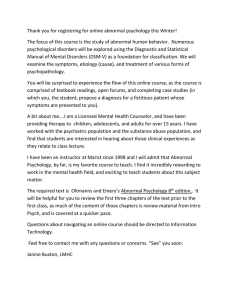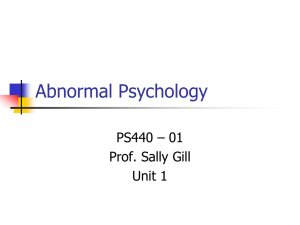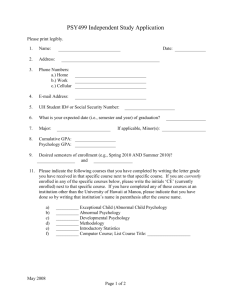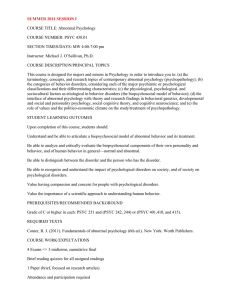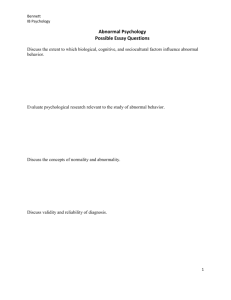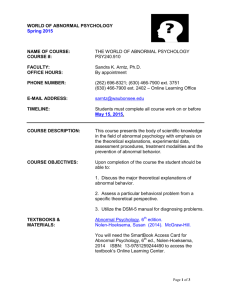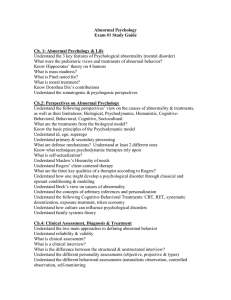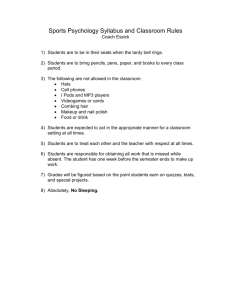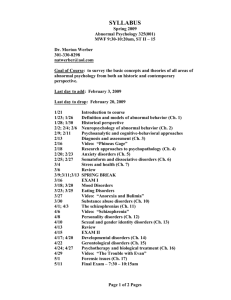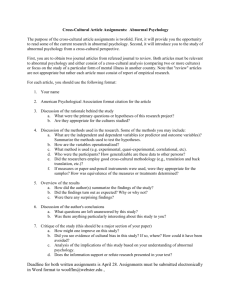PSYC3280 Abnormal Psychology
advertisement
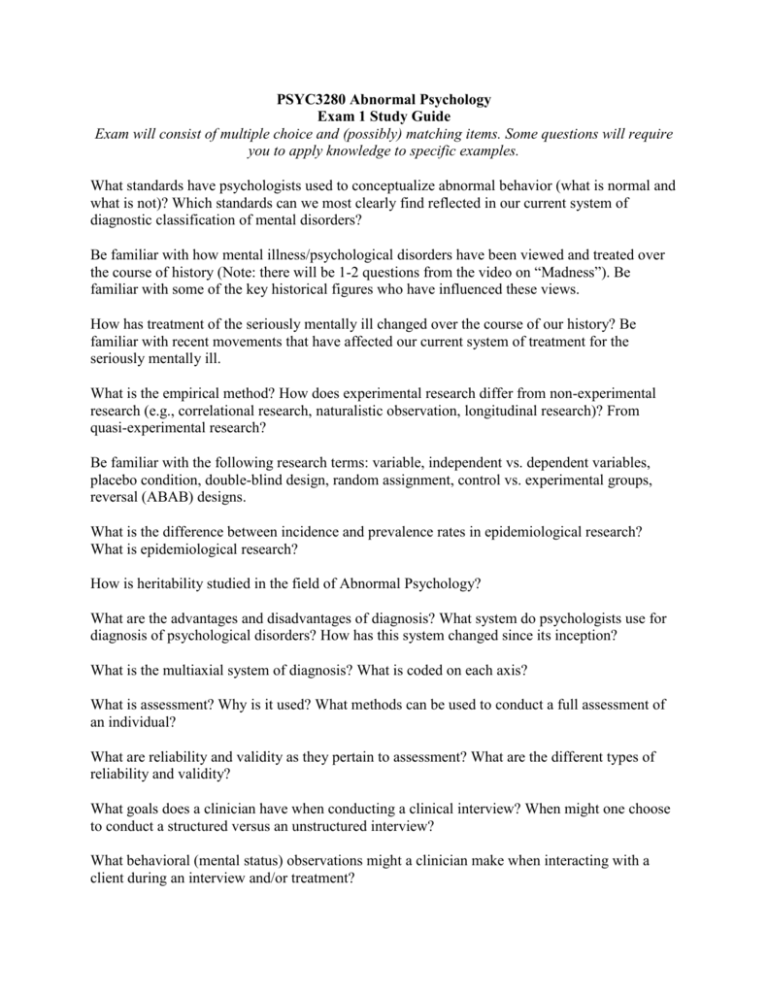
PSYC3280 Abnormal Psychology Exam 1 Study Guide Exam will consist of multiple choice and (possibly) matching items. Some questions will require you to apply knowledge to specific examples. What standards have psychologists used to conceptualize abnormal behavior (what is normal and what is not)? Which standards can we most clearly find reflected in our current system of diagnostic classification of mental disorders? Be familiar with how mental illness/psychological disorders have been viewed and treated over the course of history (Note: there will be 1-2 questions from the video on “Madness”). Be familiar with some of the key historical figures who have influenced these views. How has treatment of the seriously mentally ill changed over the course of our history? Be familiar with recent movements that have affected our current system of treatment for the seriously mentally ill. What is the empirical method? How does experimental research differ from non-experimental research (e.g., correlational research, naturalistic observation, longitudinal research)? From quasi-experimental research? Be familiar with the following research terms: variable, independent vs. dependent variables, placebo condition, double-blind design, random assignment, control vs. experimental groups, reversal (ABAB) designs. What is the difference between incidence and prevalence rates in epidemiological research? What is epidemiological research? How is heritability studied in the field of Abnormal Psychology? What are the advantages and disadvantages of diagnosis? What system do psychologists use for diagnosis of psychological disorders? How has this system changed since its inception? What is the multiaxial system of diagnosis? What is coded on each axis? What is assessment? Why is it used? What methods can be used to conduct a full assessment of an individual? What are reliability and validity as they pertain to assessment? What are the different types of reliability and validity? What goals does a clinician have when conducting a clinical interview? When might one choose to conduct a structured versus an unstructured interview? What behavioral (mental status) observations might a clinician make when interacting with a client during an interview and/or treatment? For what purposes might a psychologist in the field of abnormal psychology use intelligence tests? Neuropsychological tests? Personality tests? How do objective and projective personality tests differ from one another? What are some common types of each? How does neural communication work and why is this relevant to abnormal psychology? Be familiar with the history, theoretical assumptions, key concepts, treatment interventions, and criticisms associated with the Psychodynamic, Behavioral, Cognitive-Behavioral, Humanistic, and Family Systems perspectives. What are the advantages and challenges of group therapy? What does research tell us about the effectiveness of psychotherapy? General Exam Instructions 1. Bring at least one number 2 pencil with a good eraser. 2. Come to class on time. The exam will start promptly! No one will be allowed to begin the exam after the first answer sheet has been turned in and no one will be allowed to continue the exam past the end of class. 3. Use the bathroom before class and bring tissues, cough drops, etc. if you anticipate needing them. No one is to leave the classroom until ready to turn in their answer sheet. 4. If worn, hats must be reversed during the exam. Cell phones (turned off), snacks/drinks, and study materials need to be stowed out of sight at the beginning of the exam. 5. When you are done with the exam you will need to turn in your answer sheet and exam copy. NO TEST COPIES MUST LEAVE THE CLASSROOM!!!!!!! 6. Exam grades will be posted at the end of the hallway past the psychology department by the last four digits of your AASU ID number, or the other four digit number you chose to use. Every attempt will be made to score your exams and post grades in a timely manner. You are encouraged to come to my office hours if you have questions about your exam score after grades have been posted. We will not have time to review all exam questions in class. It is your responsibility to see me if you are interested in reviewing your exam. As usual, I am happy to arrange for an alternate time if my office hours do not work with your schedule.
